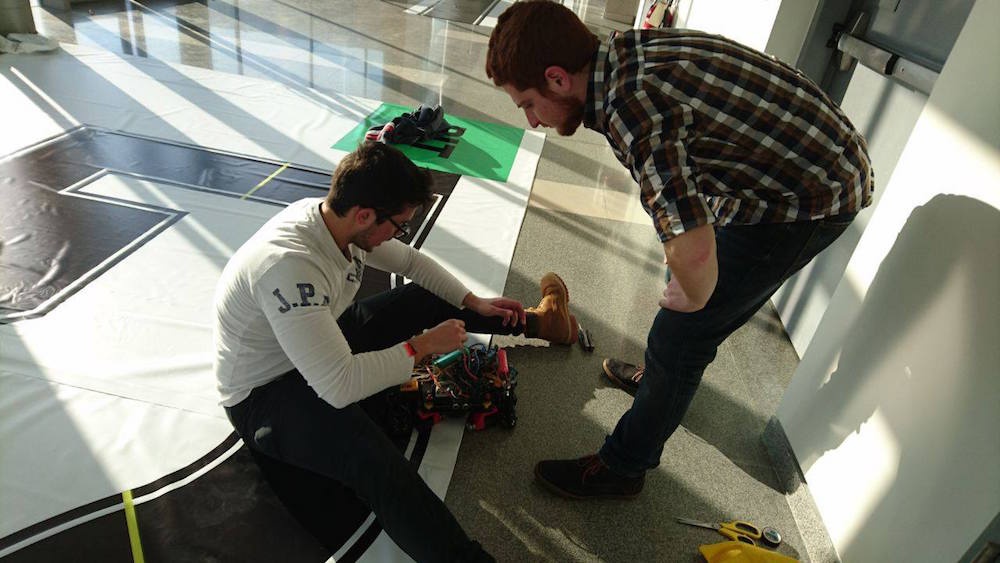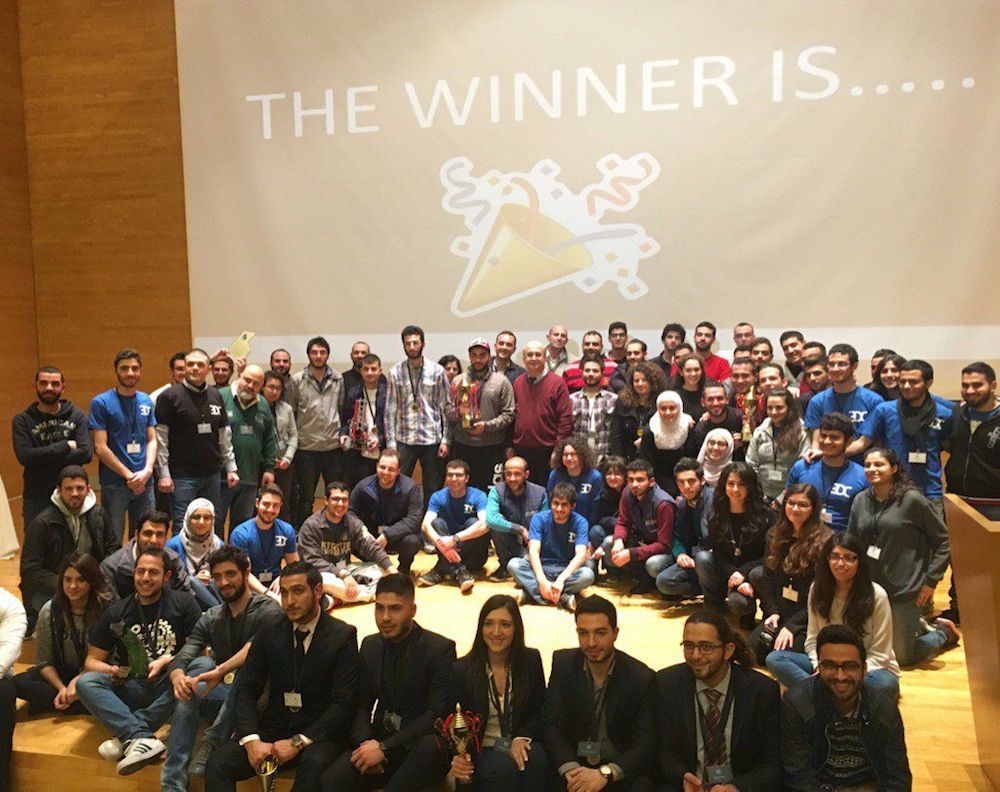How to organise a robotics competition

On a drizzly Sunday afternoon in a Beirut sports hall, 18 teams of students competed for the title of ‘best self-driving car’.
Over four hours, teams from universities around Lebanon as well as five teams from Syrian universities took part in various challenges. There was the ‘the shawarma test’, which involved picking up and carrying objects; the ‘driving test’ where cars had to drive along a track and then park; and the ‘king of speed’ race.
Robot Riders from Lebanese University won the Engineering Design Challenge 2.0, organised by the American University of Beirut (AUB) Robotics Club. They believe their car took first place because of their experience in robotics competitions.
Second place: Kaizen, Yarmouk Private University in Syria.
Third place: N Power, American University of Science and Technology (AUST).
King of Speed Award: N Power.
Innovation Award: Ipsum, AUB.
Design Award: MCM, AUST.

Making it happen
It might have seemed like a simple enough affair - get a bunch of kids together to make automated cars and have them pass tests - but is it really that easy?
Mohamad Fares Al Jajeh, one of the robotics club’s founders, gave an emphatic “no”.
This was just their second competition. Last year their theme for the competition had been ‘who leads on water?’ “It was not a bad idea as much as it was difficult to manage. Each year we learn more and apply what we learn the year after. We got so many lessons today and we are already very optimistic about next year.”

Al Jajeh gave Wamda his tips on how to run a robotics competition.
1. Plan early. Since May 2016 we’ve been planning this. We released the theme and rules in September. You need to start early so that no time is wasted and nothing is rushed.
2. Be organised. In terms of time management we really had to be more organised. Not just from month-to-month, but day-to-day. We have to be rigid on the timeline of the whole event, not just the day of the competition itself. Make sure everyone is where they are supposed to be at the right time.
3. Have workshops. The first time around the performance of the teams wasn’t great, so we decided to host workshops in the lead up to the competition day. You should look to things like the basics of sensors and motors, wifi and bluetooth communication, mobile robot manipulation, interfacing with Raspberry Pi, and introductions to image manipulation.

4. Create the right atmosphere. Those people taking part need to be able to come to us with any queries or problems and know we can support them. So whether it is finding new batteries because theirs exploded just before a game, or providing emotional support for when things are just not going right, we need to be there.
5. Get sponsors. Obviously an event like this isn’t free so you need to have sponsorship. When it comes to picking who to approach you need to think about who will want to be involved. We went for people that have a keen interest in this field.
6. Make the competition themes friendly. You need to pick a theme that is easily accessible to those wanting to take part. Our first competition was ‘who leads on water?’. In retrospect this was a mistake. It was fun but the logistics involved were not something we had considered beforehand. Obviously not everyone has access to a pool for practicing. We would like to do a quadcopter themed competition but already you can imagine the logistical difficulties of that.
7. Be logistically savvy. For our events we have teams presenting to judges in parallel to the games. We learnt after our first event that you need to have all of these activities happening in close proximity otherwise time is wasted going from one place to another.
8. Be specific with the rules and grading. We made up everything in the first year. We did the grading ourselves and it wasn’t realistic. We didn’t pay much respect to how it would actually be done in the field. You have to be more practical and rigid. The ‘shawarma express’, which was the picking up and moving of objects with the cars, had tough grading rather than too much interpretation.
9. Market the event to the right people. You want to target the right participants. Last year we had seven teams and this year there are 18, with five coming from Syrian universities. Going into universities and talking directly to the students about the competition is far more beneficial. Target those you know will be interested - you’re not going to go to the art school or business school because the likelihood of finding interested parties is slim to none.


